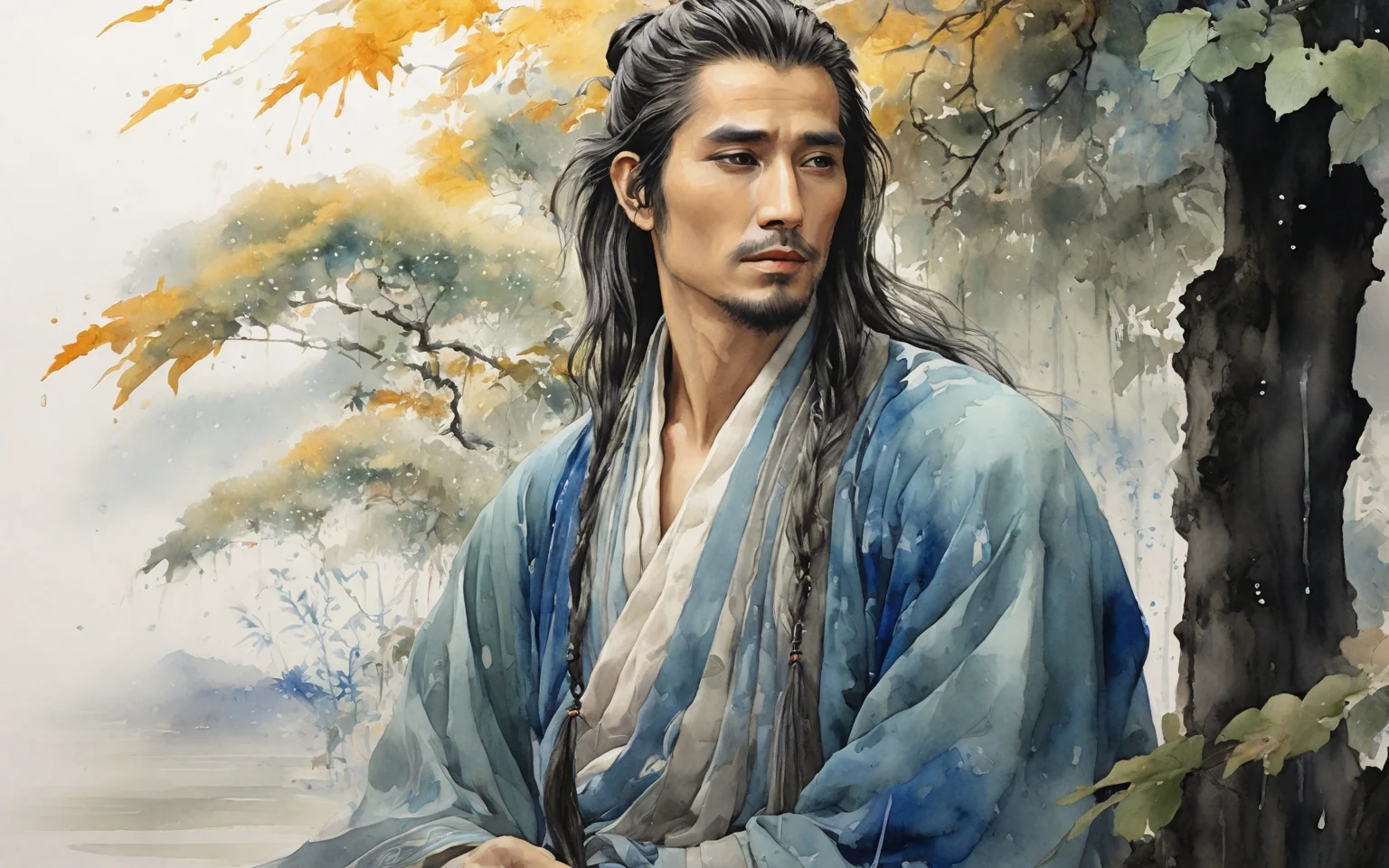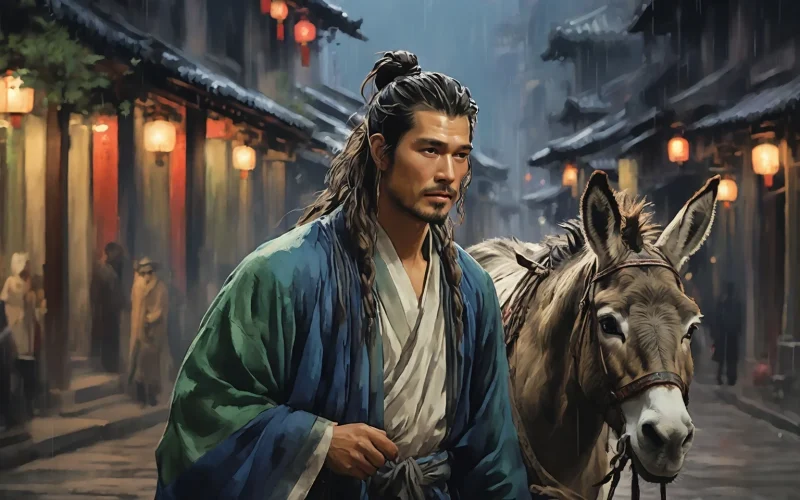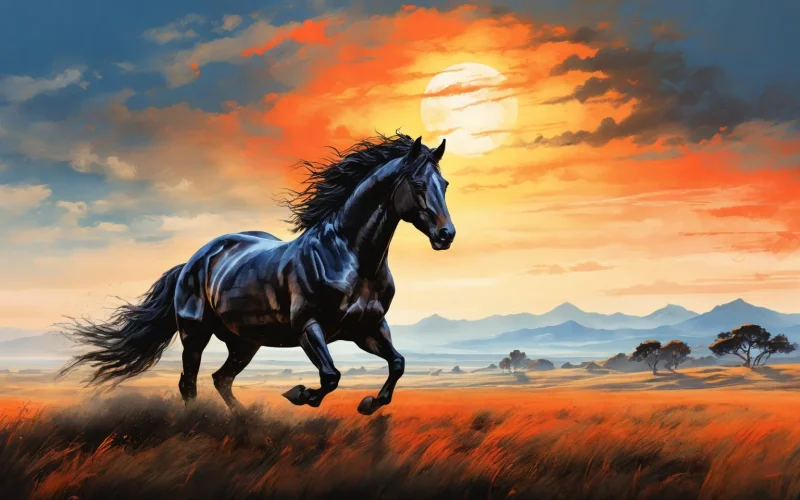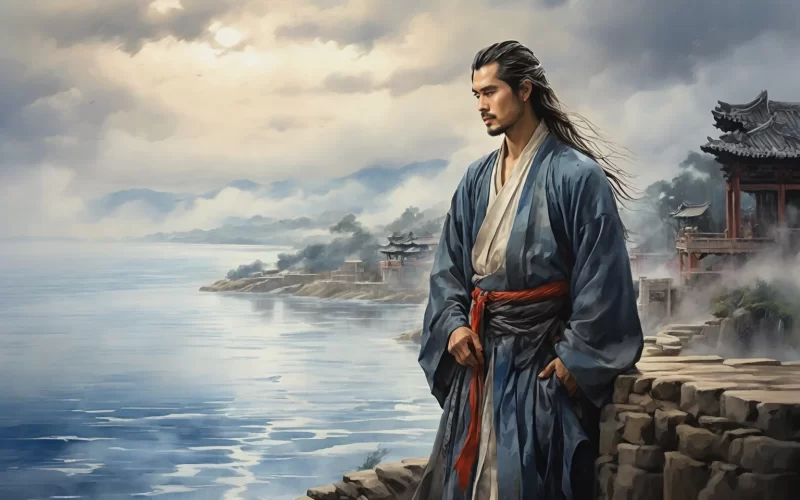The rich of hunger never die;
The poor of their misfortune sigh.
Minister Wei, would you please hear
What I would confide to your ear?
While young, I was a candidate
In Civil Exams of the State.
Having ten thousand volumes read,
I wrote as if by God I was led.
In prose I was second to none;
In verse I vied with the best one.
Ministers would like to know me,
And poets my neighbors would be.
I thought, outstanding as was I,
A job was not hard to come by.
I would help the crown in my strife
To purify the ways of life.
I could not do what I desired;
Singing, I would not be retired.
Riding a donkey thirteen years,
I suffered the capital's sneers.
I knock at the mansions by day;
At dusk I hear dusty steeds neigh.
I eat leftovers of a meal;
In vain I suffer a great deal.
The Crown showed his favor and love;
I saw a chance to rise above.
In the sky the roe folds its wings;
On the sea swim no scaly kings.
I thank you for your kindness tuee,
Knowing you're kind in what you do.
Whenever you meet a good friend,
It's my new verse you recommend.
Though glad of your prosperity,
How could I bear my poverty?
I'm not unhappy in my place;
But it's a dilemma I face.
Should I go seaward for my rest,
Or to the capital in the west?
I love the Southern Mountains high
And the clear River flowing by.
I can't forget what I owe you,
Nor what to ministers is due.
Like a white gull on the vast sea,
I'd fly for miles and miles, carefree.
Original Poem:
「奉赠韦左丞丈二十二韵」
杜甫
纨绔不饿死,儒冠多误身。
丈人试静听,贱子请具陈。
甫昔少年日,早充观国宾。
读书破万卷,下笔如有神。
赋料扬雄敌,诗看子建亲。
李邕求识面,王翰愿卜邻。
自谓颇挺出,立登要路津。
致君尧舜上,再使风俗淳。
此意竟萧条,行歌非隐沦。
骑驴十三载,旅食京华春。
朝扣富儿门,暮随肥马尘。
残杯与冷炙,到处潜悲辛。
主上顷见征,欻然欲求伸。
青冥却垂翅,蹭蹬无纵鳞。
甚愧丈人厚,甚知丈人真。
每于百僚上,猥诵佳句新。
窃效贡公喜,难甘原宪贫。
焉能心怏怏,只是走踆踆。
今欲东入海,即将西去秦。
尚怜终南山,回首清渭滨。
常拟报一饭,况怀辞大臣。
白鸥没浩荡,万里谁能驯?
Interpretation:
This poem was written in 748 AD when Du Fu was 37 years old and living in Chang'an. In 747, Emperor Xuanzong ordered a national examination for people with skills, which was organized by Li Linfu, but in the end, no one was selected. Du Fu participated in the exam but failed, feeling disheartened and intending to leave the capital. This poem was written as a farewell to Wei Ji, expressing Du Fu's frustration over not being able to showcase his talents and his disappointment with reality.
“纨绔不饿死,儒冠多误身。”
(Those dressed in fine silks never go hungry, while those wearing Confucian caps often find themselves in distress.)
These lines reflect Du Fu's anger at the social injustice of the time, highlighting the reversal of talent and virtue in feudal society. The rich, though untalented, lead comfortable lives, while scholars like Du Fu, despite having ideals and talent, often face hardship due to societal constraints.
“丈人试静听,贱子请具陈。”
(Please, sir, listen quietly, and I will tell you everything.)
Du Fu here pours out his pent-up emotions to Wei Ji. Although in distress, he still hopes for understanding and assistance.
“甫昔少年日,早充观国宾。”
(In my youth, I was favored by the court and received recognition early.)
These lines reflect Du Fu’s early success and recognition, a time when he was admired for his talent and filled with idealism and hope.
“读书破万卷,下笔如有神。”
(I have read tens of thousands of books, and when I write, it feels as if the gods are guiding my pen.)
Du Fu confidently describes his talent in reading and writing, believing that his literary skills were inspired by a divine force.
“赋料扬雄敌,诗看子建亲。”
(My prose could rival that of Yang Xiong, and my poetry could match that of Cao Zhi.)
These lines boast Du Fu’s literary talent, claiming that his works could compete with the famous scholars of his time.
“李邕求识面,王翰愿卜邻。”
(Li Yong once wished to meet me, and Wang Han hoped to be my neighbor.)
Du Fu reminisces about how he was once recognized by the literary figures Li Yong and Wang Han, showing that he was widely respected in his youth.
“自谓颇挺出,立登要路津。”
(I believed that my talent would lead me to great success in the official path.)
Du Fu expresses his self-confidence, thinking his talent would surely lead him to a prominent official position.
“致君尧舜上,再使风俗淳。”
(My ideal was to help the ruler, bring the country to prosperity, and improve the social customs.)
Du Fu’s political ambition is revealed here, hoping to contribute to the state and improve the moral fabric of society.
“此意竟萧条,行歌非隐沦。”
(However, these ideals eventually faded, and my song now is no longer hidden in sadness.)
Du Fu expresses the disappointment of his shattered ideals, the enthusiasm and hope he once had now fading into desolation.
“骑驴十三载,旅食京华春。”
(I have been riding a donkey for thirteen years, living a hard life and relying on the capital for food.)
Du Fu depicts the difficult life he has endured in the capital for the past thirteen years, living in hardship.
“朝扣富儿门,暮随肥马尘。”
(I knock on the doors of the rich in the morning, and follow the dust of their horses in the evening.)
These lines describe Du Fu's humiliation and helplessness in daily life, as he endures poverty and is looked down upon by others.
“残杯与冷炙,到处潜悲辛。”
(Leftover wine cups and cold food are everywhere, concealing deep sorrow and pain.)
Du Fu paints a picture of his poverty and despair, delicately portraying his loneliness and helplessness in his struggles.
“主上顷见征,欻然欲求伸。”
(Not long ago, I received an imperial summons, and suddenly I hoped for a chance to prove myself.)
Du Fu talks about a moment when he thought he had a chance to serve the imperial court but was once again blocked by the system.
“青冥却垂翅,蹭蹬无纵鳞。”
(Like the green bird with wings drooping, I have lost my freedom and cannot fly.)
Du Fu compares himself to a bird whose wings are no longer able to soar, symbolizing his trapped aspirations and the collapse of his ideals.
“甚愧丈人厚,甚知丈人真。”
(I feel deeply ashamed of not living up to your kindness, and I know you are a sincere person.)
Du Fu expresses his gratitude and complex feelings toward Wei Ji, acknowledging his sincerity.
Sixteenth Couplet:
“每于百僚上,猥诵佳句新。”
(In front of the officials, I often recite my new works in a low voice.)
Du Fu depicts how, even in his situation, he continues to seek recognition, trying to show his talent despite the circumstances.
Seventeenth Couplet:
“窃效贡公喜,难甘原宪贫。”
(I secretly try to emulate the joy of Duke Gong, but I cannot bear the poverty of Yuan Xian.)
Du Fu expresses that while he has ideals, the reality of his poverty makes it difficult to endure.
Eighteenth Couplet:
“焉能心怏怏,只是走踆踆。”
(How could my heart not be heavy? I can only force myself to leave.)
Du Fu reveals the internal conflict and frustration of departure, showing his reluctance and sorrow.
“今欲东入海,即将西去秦。”
(Now I plan to head east to the sea, and later travel west to Qin.)
Du Fu expresses his determination to leave Chang'an and seek new opportunities.
“尚怜终南山,回首清渭滨。”
(But I still feel a deep affection for Zhongnan Mountain, looking back at the clear waters of the Wei River.)
These lines show Du Fu’s deep attachment to his homeland, even though he is leaving, he still fondly recalls his hometown.
“常拟报一饭,况怀辞大臣。”
(I often think about those who once showed me kindness, especially the ministers.)
Du Fu expresses his gratitude to those who once helped him, but now, due to his difficult circumstances, his aspirations seem increasingly unattainable.
“白鸥没浩荡,万里谁能驯?”
(The white gull vanishes into the vast ocean, who can tame it?)
Du Fu uses the image of a white gull to symbolize his free spirit, which cannot be restrained by the harsh reality of his situation.
Writing Features:
This poem uses extensive contrasts and complex expressions, embodying Du Fu’s melancholic and contemplative writing style. The poem describes the shift from Du Fu’s youthful brilliance to his current struggles, reflecting deep reflections on life and emotional expressions. The contrasts in the poem emphasize the disparity between his present hardship and former glory, filled with anger and sorrow at the unfairness of society.
Overall Appreciation:
The entire poem reveals Du Fu’s long-standing frustration and dissatisfaction, particularly the helplessness and disappointment in the face of political oppression. Through detailed descriptions and contrasts, Du Fu presents a vivid picture of his past brilliance compared to his current situation, filling the poem with complex emotions and profound sadness. The poet’s depiction of his hard life in Chang'an and his deep sense of failure resonates throughout the poem.
Insights:
This poem profoundly reveals Du Fu’s anger at social injustice and his helplessness toward fate, expressing the suffering of scholars in a feudal society who are stifled by the system. Through the contrast between his past glory and current plight, Du Fu reflects on the shattering of his ideals and the cruelty of reality. At the same time, the poet subtly reveals that people, even in the direst situations, continue to hope and yearn for a better future. This poem not only reflects on Du Fu's personal fate but also criticizes the unfair social structure. It teaches us about resilience and the importance of perseverance, even in the face of overwhelming adversity.
Poem translator:
Xu Yuan-chong (许渊冲)
About the poet

Du Fu (杜甫), 712 - 770 AD, was a great poet of the Tang Dynasty, known as the "Sage of Poetry". Born into a declining bureaucratic family, Du Fu had a rough life, and his turbulent and dislocated life made him keenly aware of the plight of the masses. Therefore, his poems were always closely related to the current affairs, reflecting the social life of that era in a more comprehensive way, with profound thoughts and a broad realm. In his poetic art, he was able to combine many styles, forming a unique style of "profound and thick", and becoming a great realist poet in the history of China.











